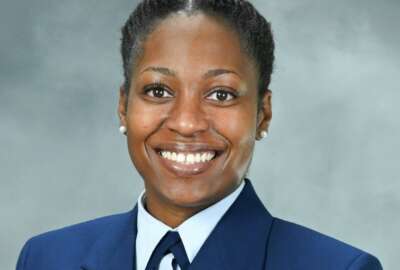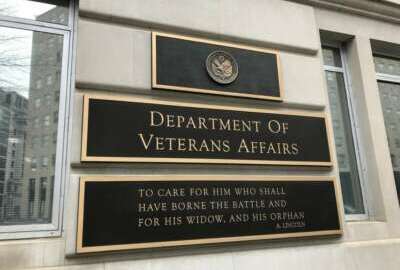
Two Black federal employees, two totally different experiences
A one-time hospital orderly and a Coast Guard officer - can this be the same federal government?
Consider this statement: “We can clean the floors. We can clean the toilets. We can cook the food. But we can’t be in leadership. No, we’re not smart enough.”
How would you like to go through a working life thinking that’s what leadership thinks of you? Yet that is exactly what’s in the mind of rural Department of Veterans Affairs employees — Black employees, that is.
That lament is from the president of Local 2338 of the American Federation of Government Employees, which represents VA employees in a place you’ve probably never heard of: Popular Bluff, Missouri. They work at the John J. Pershing Medical Center. It’s out of the way. You can buy a recent 2,000 square foot brick home there with three bathrooms and a two-bay garage for about $150,000.
Kevin Ellis said he obtained Pershing’s personnel actions records through a Freedom of Information Act request. I haven’t seen them, I only know what he is on the record as saying.
“The documents show a consistent pattern of discrimination against African Americans applying for jobs within the VA,” Ellis said in a Federal Drive interview.
Nationally, AFGE has reported on a FOIA-produced finding that Whites are twice as likely to be promoted at VA than Blacks.
We asked VA for a response, but couldn’t get an interview on this topic. A public affairs person wrote: “As a result of VA’s commitment to fair and equal treatment of all employees, the department has boosted its rating from 17th to 6th among large federal agencies in the Partnership for Public Service’s annual Best Places to Work survey of federal employees.”
The spokesperson also took a swipe at AFGE itself, stating, “AFGE leaders are trying to distract from the fact that they’re currently being sued for ‘fostering a culture that turned a blind eye to allegations of harassment,’ to include the alleged frequent use of racial slurs by the former AFGE National President.” That’s a reference to a lawsuit filed in July against current and former AFGE leaders for tolerating sexual harassment and repeated use of racial slurs by former union President J. David Cox. He was pushed out last fall after allegations of lurid behavior first surfaced in reporting by Bloomberg.
The statement, concluded, “Unlike AFGE, VA does not tolerate harassment or discrimination in any form.”
This exchange, as it were, comes as AFGE and VA negotiations for a new national contract have stalled and moved to arbitration. The two sides don’t merely disagree — they harbor deepening mutual bitterness.
But what of Ellis, out there in Missouri? He joined the staff of Pershing 17 years ago. He began as a housekeeper and now has a position in the voluntary services group. He said he’s trained the White people that have been promoted past him, and that other Black colleagues have had the same experience. When Blacks apply for promotions, Ellis said, “we will not be selected. Even though we will have the most qualified scores, we will not be selected.” He added that management gets around this is by using open-ended questions instead of an objective matrix.
These situations are exceedingly difficult to sort out from an external standpoint. But it seems clear VA has a situation that needs looking into. “Systemic racism” is a charge thrown around freely, when it may be more accurate to say that racists manage to persist in spite of specific policy barring racial discrimination. Yet the longer it goes on, the more the “systemic” quality appears credible.
Whatever the cause, a large union and a large agency have thrown mud on one another, the kind that’s difficult to wash off. Sad. Everyone deserves better.
I’ve done a series of interviews with current and former Black federal military and civilian officials. They report federal working conditions for Black feds aren’t universally difficult.
Consider Tanesha Green-Baker. A lieutenant in the Coast Guard who recently received a meritorious service award — not from the Coast Guard but from an association known as Blacks In Government. BIG gives awards to notable employees across the government, and the Coast Guard made note of it in its weekly public affairs distribution from the commandant.
You can hear Green-Baker in my interview from yesterday, which we booked after I saw the announcement.
She’s done sea duty and now works in intelligence regarding U.S.-bound foreign vessels. She’s also been selected as a White House social aide, helping with state visits, medals of honor ceremonies, even the visit of the Washington Nationals after their World Series win.
More importantly, Green-Baker said she has had a positive experience in the Coast Guard. She attended the historically-Black Spelman College in Atlanta, and received a Coast Guard scholarship under its student pre-commissioning program.
She told me, “Largely, my experience in the Coast Guard has been fantastic. I have not personally been affected by any issues of racial inequality. It’s been pretty fair and equitable.” She added that she believes working at the officer level shields her from some of the racial issues she might have had as an enlistee.
But many Black employees, Green-Baker included, live with an unsettling backdrop of uncertainty.
“This may just be an internal problem for myself but I think a lot of times I wonder if my own merit is being questioned, like, ‘How did she get here?’ Is it because of affirmative action or whatever program she got in through?” she said.
This is not an even/or situation. Sometimes people find themselves in a yes/and situation. Yes, they did get to the starting blocks thanks to a special program. But they got down the track on their own two feet. Beyond that, Green-Baker tries to be guarded in her presentation.
“There are times when, as a Black woman in the Coast Guard, I often have to think about my role and what my presence in a room does. Essentially, what I mean by that is, when there are heated conversations going on or instances where they’d like my opinion, I have to be very careful on how I give my opinion,” she said. Why? The possibility of being perceived as the “angry Black woman.”
She sounded anything but angry in my interview, but some form of that phenomenon is familiar to people whose background has been the object of generalized discrimination.
There are no simple, fast or readily apparent answers because no two situations are identical. But as a former intelligence official once said in a different context, it’s a conversation we need to have.
Copyright © 2024 Federal News Network. All rights reserved. This website is not intended for users located within the European Economic Area.
Tom Temin is host of the Federal Drive and has been providing insight on federal technology and management issues for more than 30 years.
Follow @tteminWFED
Related Stories






